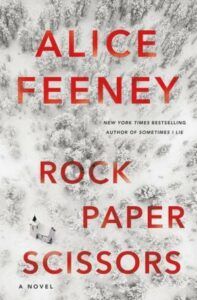
Libraries Are For Everyone (and Everything): 5 Unexpected Items Your Library Will Lend You
Let’s talk about unconventional library collections, shall we? Earlier this summer, I was at a socially distanced, garden-based family shindig. I hadn’t been home to Montreal to see my family since the Before Times, so I was happy as a clam-shaped creature. And then, suddenly, my brother mentioned that he didn’t have a library card and the sky darkened as clouds gathered on the horizon.
“But I’m a library professional,” I sputtered, betrayed and disappointed. “Even if you don’t want to borrow books,” I went on, and started listing all the glorious gifts that libraries bestow upon the populace. My family laughed at my ramblings, but readers, it pains me that members of my own family don’t know all that libraries have to offer.
Many a time I’ve heard people extolling the virtues of Google, explaining that they don’t need library accounts because the internet lets them know and access everything. And while information is a big part of what libraries impart, it definitely isn’t all. When people say that the internet has made libraries obsolete, it’s another example of libraries and librarians being misunderstood by the public. Now, I’m not going to start detailing all the services libraries provide (Super smart reference geniuses! Printing/scanning/faxing! Ebooks!) because many of these are already well-known. Instead, I am going to discuss the libraries within libraries. These are special collections that some libraries have, where patrons can borrow items like instruments, Radon Gas Detectors, hand tools, and plant seeds.
Musical Instrument Library
Instruments can be very pricey, and sometimes you don’t want to buy one until you know you actually like playing it. That’s where musical instrument libraries come in, as you can borrow a banjo or a kalimba and then read up on the instrument using how-to resources compiled by library staff. Borrowing instead of buying saves money and avoids cluttering the house with an instrument that may only be played a handful of times. The one downside is that some instruments will have long waitlists, but what’s the rush? It’s still definitely worth it.
Tool Library/The Library of Things
Sometimes called a tool library or the library of things, this is one of my favorite options for a special collection. It can feature useful devices such as Kill-a-Watt Power Readers and Radon Gas Detectors, tech items such as GoPros, and/or hand and gardening tools. These libraries contribute to creating less waste because people don’t need to buy something for short-term use, and they are a good way for people to live more affordably. I rarely do tool-related tasks, and so buying those items to use once or twice doesn’t appeal. Using a library of things, I can access those items easily and then give them right back. Perfect.
Streaming Movies Digital Library
I think that by this point most people know that libraries allow patrons to download ebooks and e-audiobooks. Many also know that libraries give patrons access to resources like Ancestry.com, statistical reports, consumer reports, and LinkedIn Learning (and, if you didn’t, well, there’s another reason to sign up for a library card!) But do you know that public libraries also supply you with streaming movies and television? Plus, I appreciate that Kanopy (the service used by my library system) has a lot more ’90s indie films than any of the streaming services I pay for.
Zine Library
People can often underestimate how wonderful and important zines can be, and a zine library gives users the chance to discover their goodness in one big swoop. After all, zines are DIY publishing that amplifies underground voices. Additionally, zine creators control the packaging of their words and art. I’ve often enjoyed reading people’s zines, but my problem is that I don’t necessarily have a spot for them to live. Space in my apartment is at a premium, and so I have to make hard choices about what stays and what goes. Having a zine library at the library means that I can a) read them there; after all, they are often short or b) bring them home temporarily and not feel stressed by clutter.
Seed Library
Seed libraries have a special place in my heart — despite the fact that I do not garden in any way, shape, or form; my partner was the volunteer coordinator of the seed library at a library where I worked and my boss put us in touch to collaborate. Community in action! But onwards and upwards from the topic of me, the idea of a seed library is that gardeners or burgeoning gardeners can “borrow” seeds and then, at the end of the growing season, those friendly neighbourhood gardeners can save seeds from their new plants and give a portion of the seeds to the library. Again, win-win!
I hope you learned something new about these unconventional library collections. Libraries want to appeal to a wide range of potential patrons, even those who don’t need or want to borrow books. One way that they achieve that goal is through supplying a variety of collections. On top of that, mini-libraries within libraries are a great way for the community to meet and interact while benefiting from free resources. Though not every library is going to offer these exact options, you might want to head to your local book palace to explore what special library collections they are advertising.











